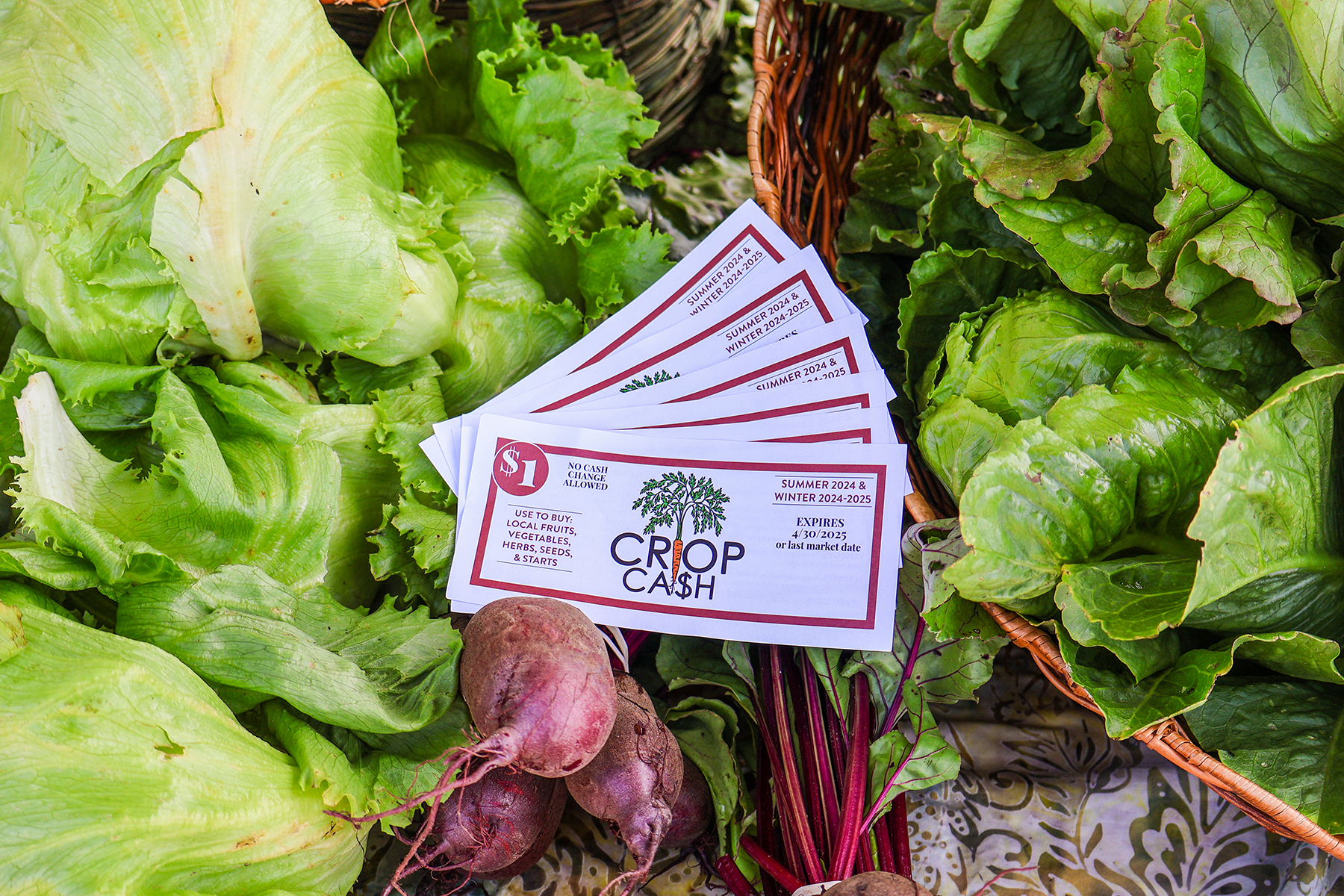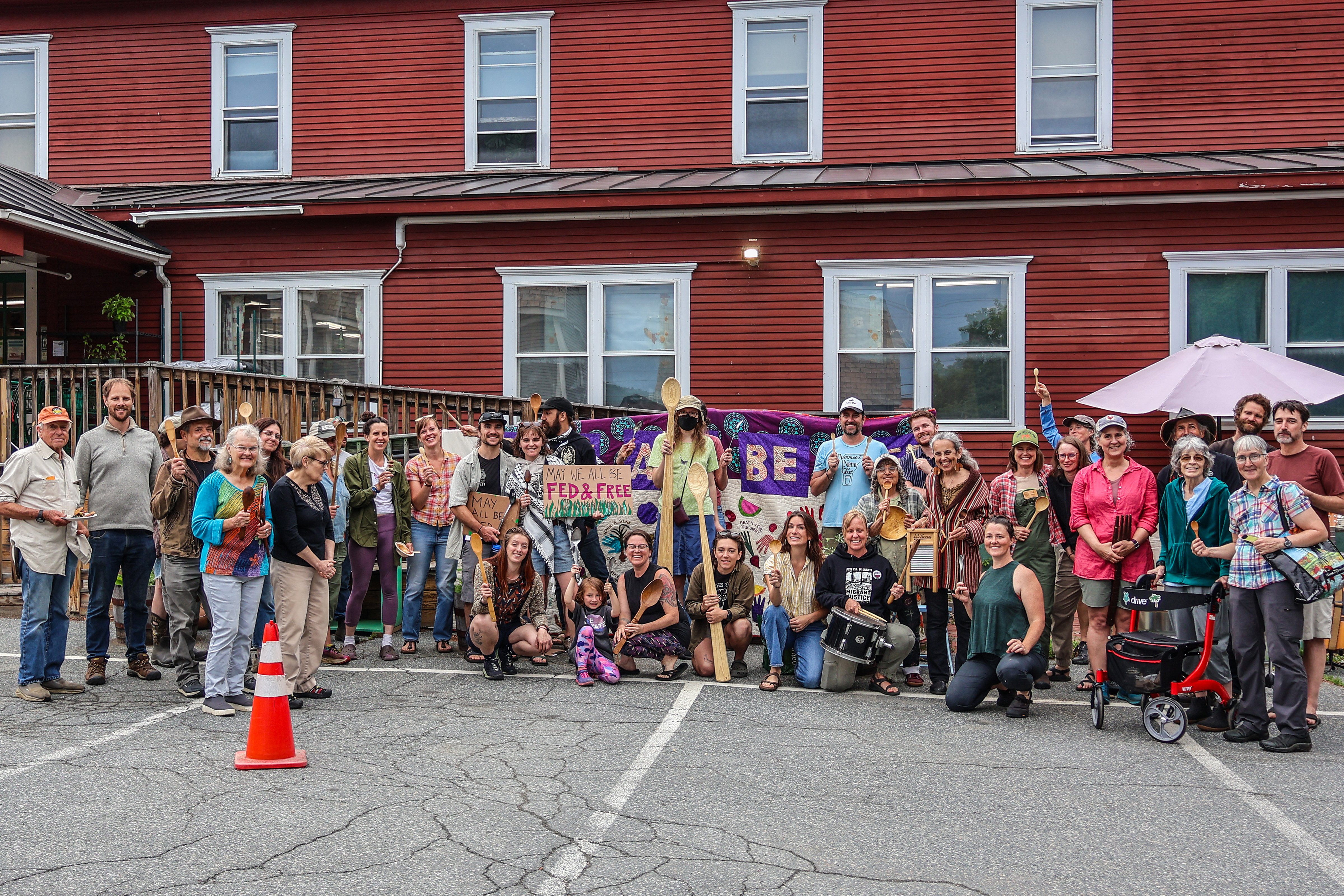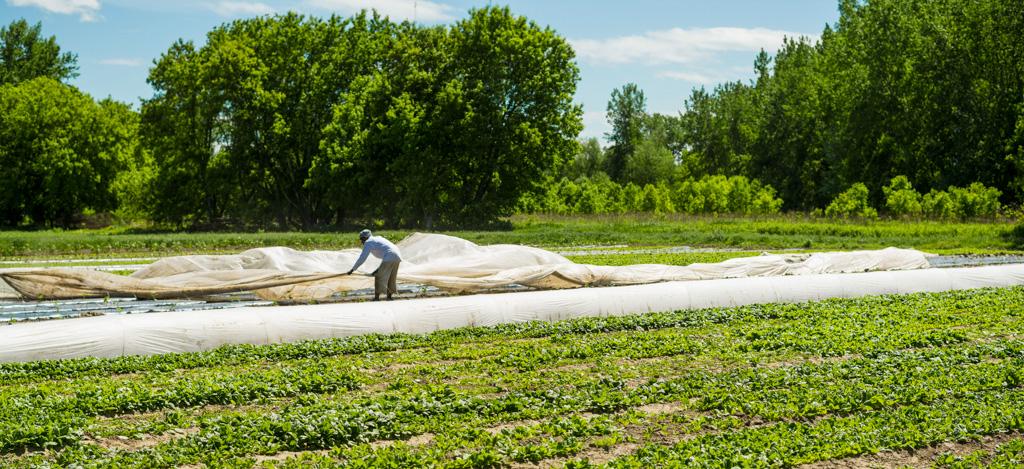July 16, 2025
House and Senate Republicans have passed a sweeping budget reconciliation bill that will affect us all. National policy experts have detailed the ways that the bill will raise families’ food and health care costs, increase poverty and hunger, and make health care less accessible–all to pay for unprecedented resources for immigration enforcement and tax cuts for the wealthy. While many details are still unfolding—and some changes won’t take effect until after the midterm elections—we’re beginning to understand some major areas of concern for our agricultural communities here in Vermont: deep cuts to farm programs, SNAP, and Medicaid, and increased investments in militarization and ICE. This is not a final analysis, but a step toward understanding how these shifts will affect Vermont’s farmers and families so we can find ways to keep each other fed while working toward collective liberation.
Inadequate Funding of Organic Farm Programs
The bill does include some funding for technology to enforce organic regulations, and it doubles the 2018 Farm Bill’s funding for the Organic Data Initiative. It also includes $8 million per year for the Organic Certification Cost Share Program over the next ten years–a start, but it is not enough to fully fund the program. This is a cut from the $11 million in annual funding allocated over the last ten years. It’s not clear how the insufficient funding will be addressed, but it is clear that this will make organic certification less accessible to some farms.
The reconciliation bill also undermines the Farm Bill. Traditionally, the Farm Bill has been an opportunity for lawmakers across a political spectrum to collaborate and compromise, as it requires 60 votes in the Senate to pass. But, because this bill was passed through the budget reconciliation process, the Senate rules required only 50 votes to pass it, bypassing the usual level of necessary bipartisan support. The sweeping scope of the Farm Bill has, at least for now, set many key policies typically shaped by the Farm Bill: commodity support programs, crop insurance enhancements, and conservation funding. But since reconciliation bills can only include provisions that affect spending, critical components of a full Farm Bill were left out, such as organic dairy data collection provisions, funding authorizations for the National Organic Program, and any reference to the Organic Agriculture Research and Extension Initiative (OREI). These provisions and funding reauthorizations would need to be addressed separately in a full Farm Bill reauthorization process. (To read more about this, see analysis from our allies at the National Organic Coalition and NSAC.)
Cuts to SNAP and Medicaid
One of our central tenets is May All Be Fed!—a rallying call to support the farmers that produce our food and ensure no one goes hungry amidst all our abundance—and The Supplemental Nutrition Assistance Program (SNAP) is essential to making that vision a reality. The Crop Cash program, which is funded in part by the federal Gus Schumacher Nutrition Incentive Program, multiplies SNAP dollars at farmers markets and farm stands, enabling more Vermonters to buy locally grown, fresh food.

The budget reconciliation bill will deliver the largest ever cut to SNAP, making it less accessible to more people. The bill also shifts more administrative costs to states starting in October 2026 and expands work requirements for SNAP eligibility. For the first time ever, states will be required to pay a share of SNAP benefits if they have a payment error rate of 6% or higher (Vermont’s error rate is currently just above 5%, one of the lower error rates in the country).
There’s a lot that we don’t yet know about how SNAP cuts and policy shifts will be implemented, and the impacts on the farmers and eaters who participate in our Crop Cash program. What we do know is that, because the law now prohibits USDA from making future increases to the cost of the Thrifty Food Plan—freezing SNAP benefit amounts from future cost-of-living adjustments—SNAP households will essentially see their benefits cut over the coming years, with some losing access entirely. While SNAP already excludes people who are living in the US without documentation, the new bill will also shut out immigrants who are here lawfully (such as refugees, asylees, or those who are victims of trafficking or domestic violence), barring them from participating in SNAP. It’s important to note that these changes are not yet in effect. Folks should continue to use their SNAP benefits and take advantage of the Crop Cash and Crop Cash Plus program at participating farmers markets! For the latest updates on SNAP policy changes, stay tuned to the Vermont Food Help resource from our partners at Hunger Free Vermont.
The bill also makes drastic cuts to Medicaid and makes health care less accessible for more people, including many Vermont farmers and farmworkers, and especially in more rural areas. VTDigger has provided an overview of the impacts that rural hospitals are bracing for, including at least 45,000 Vermonters without health care.
Unprecedented Resources for ICE, Higher Fees for Immigrants
Immigrants are targeted by the new eligibility restrictions for SNAP and Medicaid, but the bill goes further still to cause harm. Heightened targeting of immigrants has eroded civil rights and further threatened the already vulnerable agricultural workforce. Nationally, nearly 40 percent of crop farmworkers are immigrants who don’t have legal status. And here in Vermont, we’ve seen firsthand the harm caused by increased Immigration and Customs Enforcement (ICE) and Customs and Border Patrol (CBP) activity. To support safer workplaces and communities in Vermont, we encourage you to learn about the powerful organizing led by Migrant Justice and join in.
The budget reconciliation bill marks another sharp increase in targeting immigrants. Lawmakers added about $170 billion in funding for immigration enforcement, including nearly $45 billion for new detention centers. This is a 62% larger budget than the entire federal prison system, setting ICE up to be the largest domestic police force in the US. According to the American Immigration Council, this could result in the detention of at least 116,000 non-citizens every day.
The bill also increases funding for Customs and Border Patrol, including spending more than $46 billion on the wall along the U.S./Mexico border, $5 billion for Customs and Border Protection facilities, $10 billion for broader border security initiatives, and more than $13 billion to pay states for enforcing federal immigration and border policy. According to testimony from DHS Secretary Kristi Noem in early May, 6,200 local law enforcement officers had been deputized to carry out the work of ICE agents. Now, with additional funding, this program has the resources to continue to expand.
This bulked up funding for ICE and Border Patrol–setting us up for a massive uptick in detainment–is accompanied by increased fees for immigrating, navigating the paths to legal residency or citizenship, and seeking recourse from the justice system when rights are violated. NPR reports, for example, that the fee for appealing an immigration judge's decision–part of due process–jumps from $110 to $900. The administration has been clear that this targeting of immigrants is not accidental.
Budgets are moral documents. The policies advanced in the budget reconciliation bill are at odds with the interests of our small farmers and will harm our rural and immigrant communities. These policies are antithetical to our core values of care, reciprocity, and justice. In this moment, we’re invited to lean into trust, to care fiercely for one another, and to stand together in the gap. Together, we are whole–stronger, safer, more creative, and resourceful. With our long-handled spoons held high and our hearts open, we continue our work to support each other. These policies will shake our communities to the core. But all over the country, including here in Vermont, people are already coming together, developing strategies, sharing tools to fortify our communities, and strengthening networks of rapid response and mutual aid.

NOFA-VT has a long history of members coming together with a shared belief that a better way is not only possible, but necessary. Together, we’ve nurtured that vision into action. Each of us has a role to play in building the world we know is within reach. We’ll keep gathering, learning, creating, demonstrating, and singing—growing what’s possible when we stand together, and ensuring we all stay fed, in every sense of the word.

